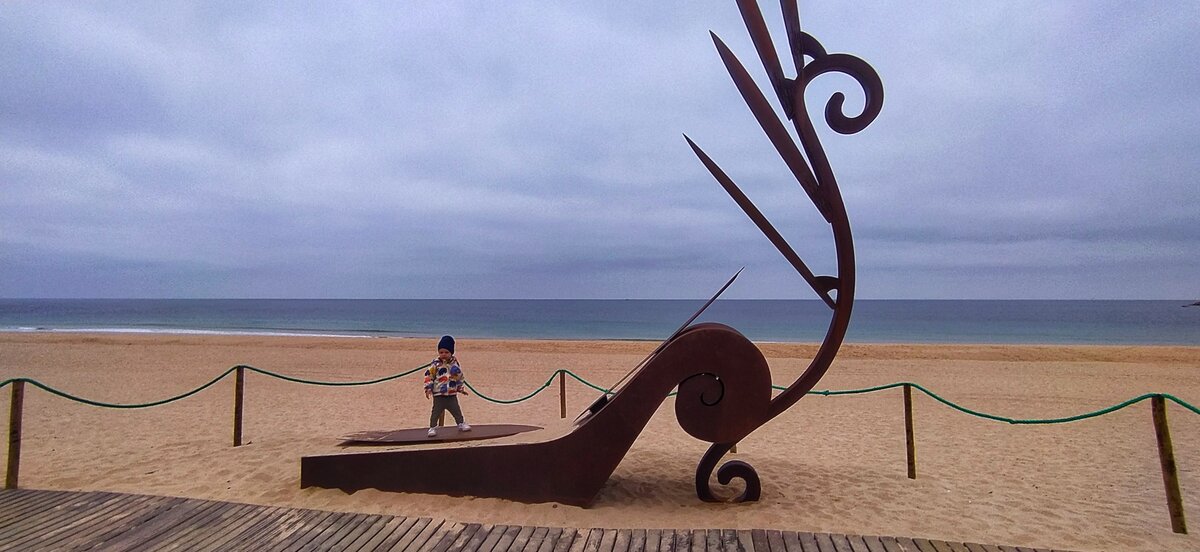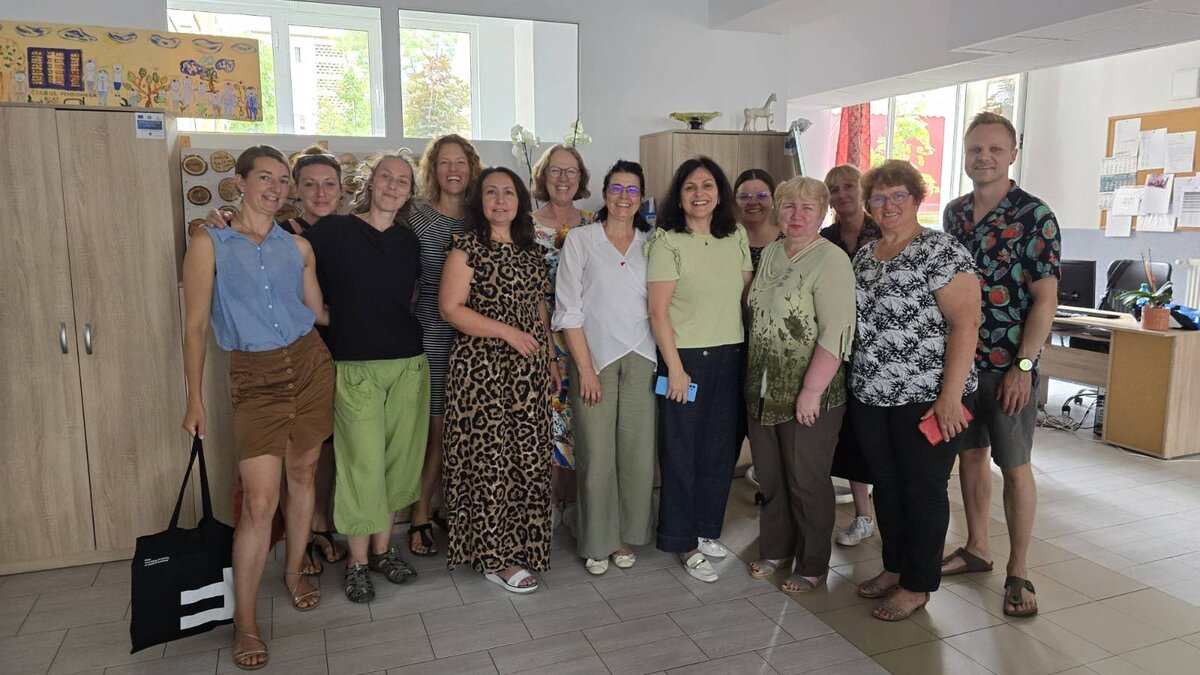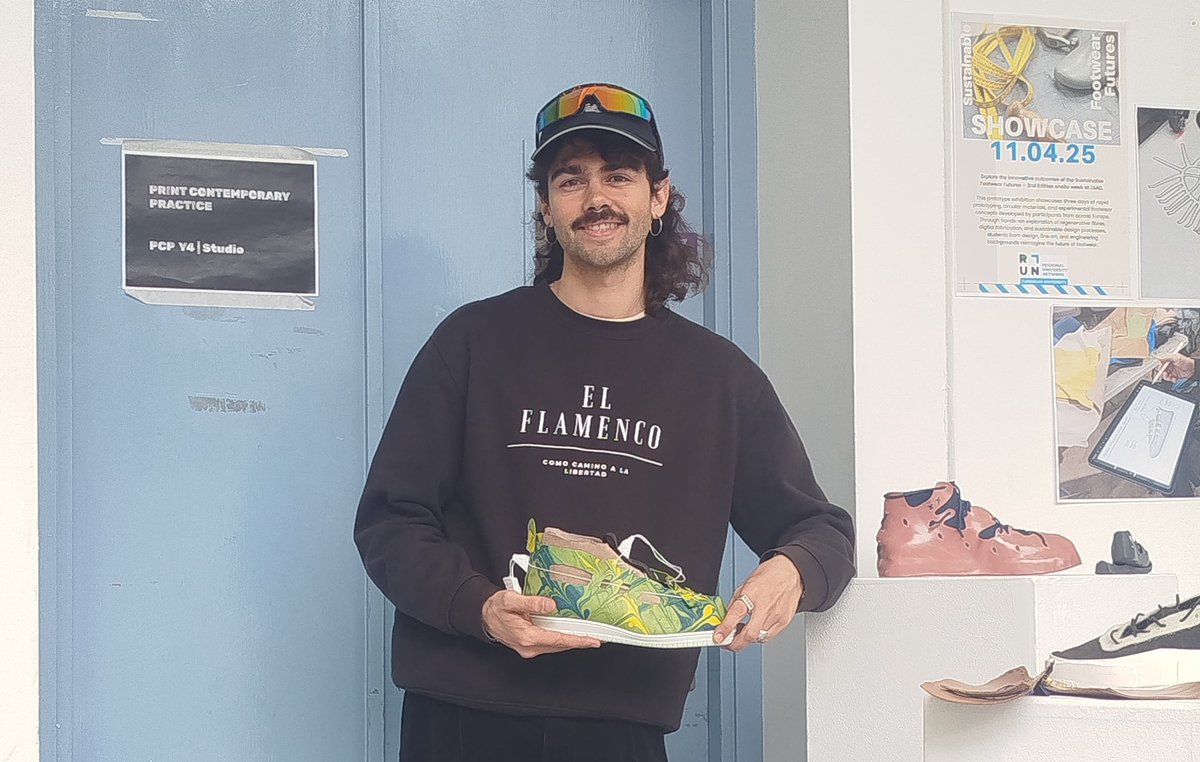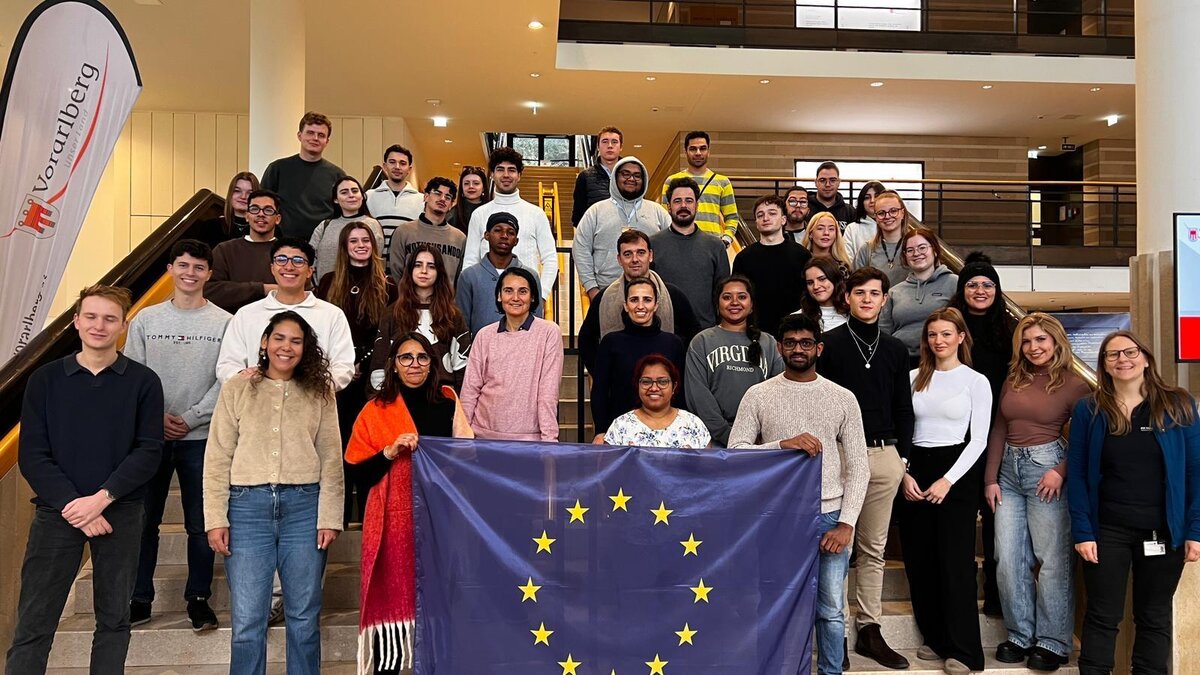RUN-EU research mission to Portugal
07.11.2023Even if the question may seem absurd to outsiders at first glance, he explains: "It didn't seem that absurd to me. In my previous research activities, I had already focused on the fields of medicine and environmental technology and felt a great deal of interest in using the miniaturized oxygen sensor developed at the FHV in marine biology as well." Packed with sensors and measuring devices, Stefan Partel set off on his journey to the sea in Portugal. The idea was to integrate the oxygen sensors into the breeding of kelp (seaweed) in order to be able to monitor and control the breeding conditions more precisely.
Oxygen sensors necessary
In Portugal, very large kelp forests, which provide a habitat for a large number of creatures, have been destroyed by fishing and other environmental influences. For this reason, the research group at the CETEMARES Institute led by Marco Lemos has developed a method to facilitate the cultivation of these forests: the seaweed seedlings are grown to a certain size under laboratory conditions and then transported to their destination. With the help of the oxygen sensor brought along by the FHV, Stefan Partel finally monitored the rearing process and worked on creating optimal conditions for the growth of the seaweed. "The experiments have shown that the use of oxygen sensors is necessary and that their integration into the current setup can be realized without great effort," he says happily.
Discuss funding options
In addition to conducting the experiments, Stefan Partel gained various insights into the research activities of the research groups at CETEMARES during his research stay. He notes: "The Portuguese partners showed a keen interest in the sensors and sensor systems we can produce at the UAS - from monitoring the effect of algae extracts on plants to analyzing fluids in oysters and sea urchins." As can be seen from this wide range of tasks, the opportunities for closer collaboration with the CETEMARES research institute are enormous. During his stay, various concepts were developed and prioritized. Stefan Partel will therefore discuss funding opportunities together with colleagues from the CETEMARES Institute so that closer cooperation in this area can take place beyond the RUN-EU Research Mission.
Part of a big family
However, this stay was not just a scientific experience for Stefan Partel, he also enjoyed the social interaction. "I felt fully integrated into the team at the Portuguese research center from day one, and we also did a lot together outside of work. This made the research stay very varied and exciting and gave me the feeling of being part of a big family."
Speaking of family: For Stefan Partel, the RUN-EU Research Mission in Peniche was also a special experience in that he was able to share the experience up close with his wife and one-year-old son, who traveled to Portugal with him. This was only possible because his wife had been given the opportunity by her employer to work remotely for the duration of the RUN-EU Research Mission. Peniche is well-known among surfers - the Pro Surf Tour also makes a stop there - which of course delighted the youngsters (see picture). But the research facility itself also organized a large event for children during their stay, in which life around the sea was explained. They were able to learn exciting details about blue sharks, marine algae and other sea creatures.
"I can only recommend that all researchers take advantage of this unique opportunity to visit other research institutions in the RUN-EU network, get involved and become part of this large community," summarizes Stefan Partel.
More about RUN-EU: Run European University



